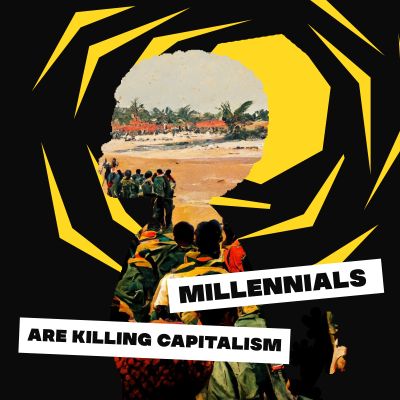We created this podcast in recognition that there are a number of podcasts for the American “left,” but many of them focus heavily on the organizing of social democrats, progressives, and liberal democrats. Aside from that, on the left we are always fighting a war of ideas and if we do not continue to build platforms to share those ideas and the stories of their implementation from a leftist perspective, they will continue to be ignored, misrepresented, and dismissed by the capitalist media and as a result by the general public. Our goal is to provide a platform for communists, anti-imperialists, Black Liberation movements, ancoms, left libertarians, LBGTQ activists, feminists, immigration activists, and abolitionists to discuss radical politics, radical organizing and share their visions for a better world. Our goal is to center organizers who represent and work with marginalized communities building survival programs, defense programs, political education, and counterpower. We also plan to bring in perspectives on and from the global south to highlight anti-capitalist struggles outside the imperial core...
http://millennialsarekillingcapitalism.libsyn.com/website
episode 41: Keeanga-Yamahtta Taylor's Race For Profit
In this episode we interviewed professor and author Keeanga-Yamahtta Taylor about her latest book Race For Profit: How Banks and the Real Estate Industry Undermined Black Homeownership. The book has already been put on the long-list for the National Book Award. Taylor is also the author of From #BlackLivesMatter To Black Liberation, which articulates many of the historical arguments she references throughout our conversation. In 2017, she also published How We Get Free: Black Feminism and the Combahee River Collective.
In this interview we discuss some of the central themes of Race For Profit, and some of the historical figures within it. The book is a thorough analysis of how racism and capitalism in the US worked together through public and private partnership, after organizers and rebellions brought about the formal end of redlining at the end of the 1960’s.
We talk to Taylor about why this book - which is based on her dissertation ended up being her third book. Additionally through the course of the conversation Taylor provides her insight into key questions for socialists in the US today, including questions surrounding the Sanders campaign, the lack of US internationalism.
For context this interview took place back in July, but we agreed to time it with the release of the book. Which is available now from University of North Carolina press and comes out everywhere this week.
Photo Credit: Sameer A. Khan/ Fotobuddy
